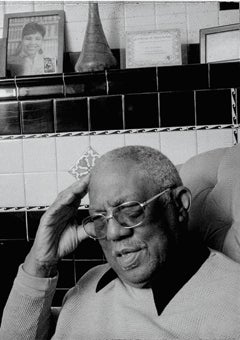
In a gripping 16,000-word essay, The Atlantic’s national correspondent Ta-Nehisi Coates explores America’s original sin, slavery, and the implications that its institution has had on generations of African-Americans.
Through the lens of housing discrimination in Chicago, Coates dissects the violent and institutionalized racism upon which the United States was built, and questions whether and how reparations could be a step towards resolve and healing for Black Americans.
He writes, “Having been enslaved for 250 years, black people were not left to their own devices. They were terrorized. In the Deep South, a second slavery ruled. In the North, legislatures, mayors, civic associations, banks, and citizens all colluded to pin black people into ghettos, where they were overcrowded, overcharged, and undereducated. Businesses discriminated against them, awarding them the worst jobs and the worst wages. Police brutalized them in the streets. And the notion that black lives, black bodies, and black wealth were rightful targets remained deeply rooted in the broader society.” But America’s response to and acknowledgment of its sordid history has fallen short. Coates explains, “It is as though we have run up a credit-card bill and, having pledged to charge no more, remain befuddled that the balance does not disappear. The effects of that balance, interest accruing daily, are all around us.”
The ten-part feature is a painful, exceedingly important, comprehensive and brutally honest dive into the ways in which American policy has systematically undercut African-American success and progress. Coates points to German-sanctioned reparations to Israel after the Holocaust to illustrate how “Germany’s reckoning with itself… provided a road map for how a great civilization might make itself worthy of the name.” America’s moral debt, he says, will remain outstanding and our country will forever be crippled by its past unless there is earnest reconciliation. He says, “The payment of reparations would represent America’s maturation out of the childhood myth of its innocence into a wisdom worthy of its founders.”
The below documentary, produced by The Atlantic, tells the story of Black migrants’ struggle for fair housing in 1960s Chicago:
Read “The Case for Reparations” at The Atlantic.
